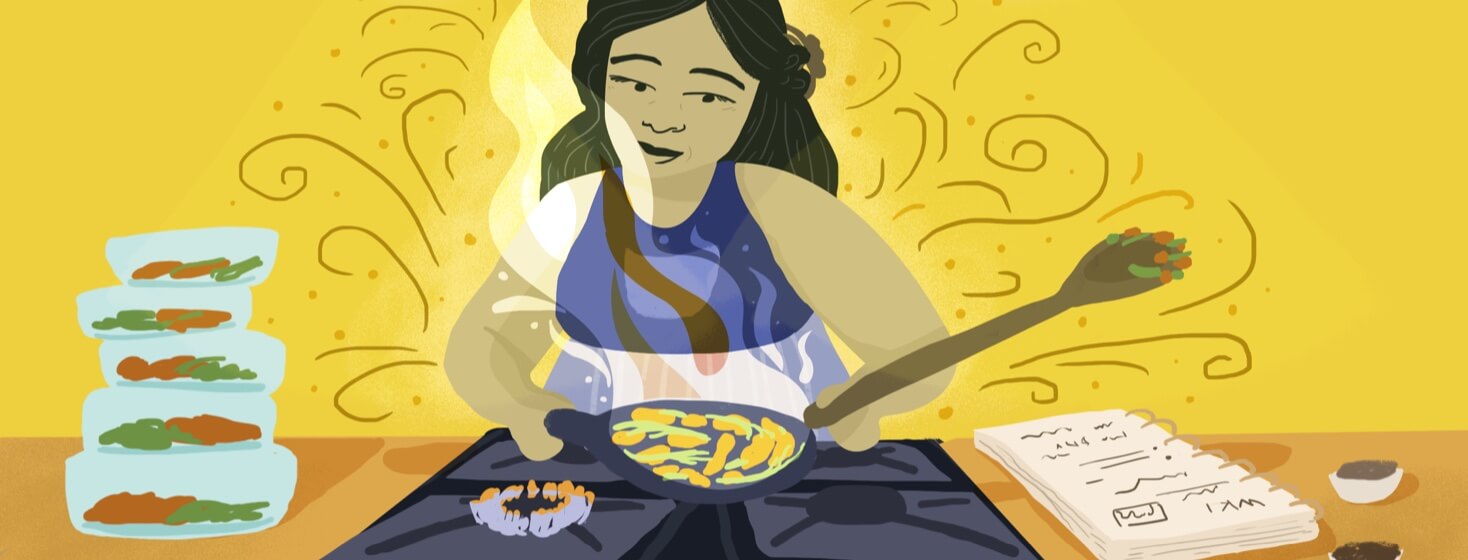Diet and Nutrition Through Cancer Treatment
What we eat, when we eat, how often we eat and even why we eat affects who we are, and how we react to life. When we have cancer, food gets complicated, but our diet may be even more important than ever.
Quality of life through food
“Malnutrition and a loss of muscle mass are frequent in cancer patients and have a negative effect on clinical outcome. They may be driven by inadequate food intake, decreased physical activity and catabolic metabolic derangements,” said the European Society for Clinical Nutrition and Metabolism when issuing guidelines for cancer patients.1 If we want to combat the effects of cancer, treatments, and the general challenges of life, eating right should be part of our game plan.
What does diet really mean?
The word “diet” isn’t always preceded by Atkins, Mediterranean, Keto, Paleo, or Weight Watchers, and it definitely doesn’t always help you lose weight - especially if you have a bad one. Diet refers to the kinds of food that a person, animal, or community habitually eats. So, what consists of a good diet? That’s where the word “nutrition” comes in.
How nutrition and diet work together
According to the American Medical Association’s Council on Food and Nutrition, nutrition is defined as "[t]he science of food; the nutrients and the substances therein; their action, interaction, and balance in relation to health and disease; and the process by which the organism (i.e. body) ingests, digest, absorbs, transports, utilizes, and excretes food substances."2
Good nutrition, therefore, would necessarily be food packed with nutrients that are most ideal for each of us, our body, and individual needs. Put that all together, and you have a recipe for a good diet.
Changing diet during cancer is challenging
I realize that I’m making this sound simple. It isn’t. Some of the biggest challenges that you will face when either changing or subscribing to a new diet is challenging your normal. Most of us socialize and interact around food! It’s our time to connect, slow down, get ready for a big event or our work day. It’s our way of winding down and recapping what happened. In the study referenced above, every member of the study, regardless of the staging or advancement of their cancer, found social significance from food which contributed greatly to their quality of life.1
To make matters worse for those of us still undergoing treatment, we can’t always hold things down, and our old favorites don’t always taste as good. Many cancer patients experience taste-changes due to chemotherapy. Not every patient experiences the same kind of food aversion, though!
Tips to make eating easier during treatment
Here are some tips that I have cobbled together that have worked for me (it's trial and error!), as well some from a study of oncology patients experiencing taste changes.3
- Add more or less seasonings to your foods
- Use more or less condiments with your foods
- Add something sweet to your normal meals
- Eat high protein foods like chicken, beans, and eggs
- Let hot foods cool before eating
- Eat bland foods
- Try marinating foods or boiling them to make foods bland
- Eat small meals several times a day
- Eat cold food
- Brush your teeth before eating
- Suck on hard candy
- Try plastic cutlery instead of metal
- And the one that has worked best for me when I was most bald: MANGO FRUIT SMOOTHIES!!
If you have tips and tricks, feel free to reach out and comment below. We’d all love to hear what works for YOU!
Enjoy! Be Well. Live fully.
Keep Moving Forward.
-Kenny

Join the conversation